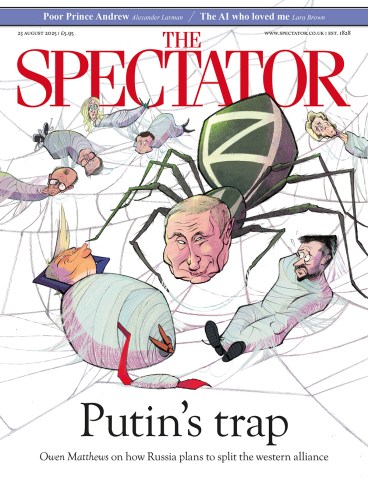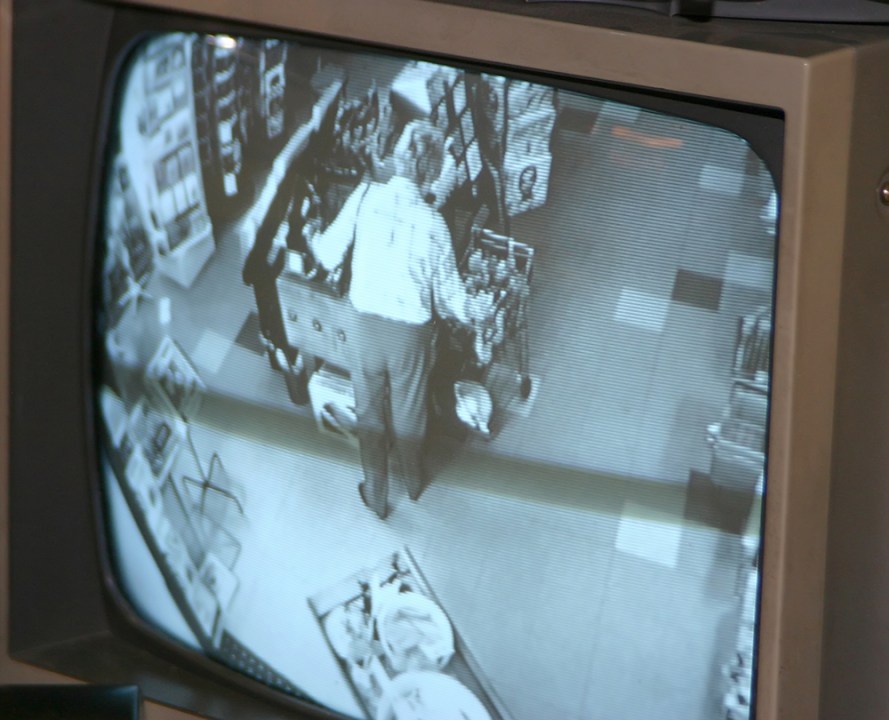
On reflection, a tradition of shelving many desirable goods within ready reach is extraordinary – especially because the premises in which these wares are invitingly presented provide unfettered access to every passerby. By and large, it’s dead easy to pick up one of these desirable objects – or dozens, should forethought ensure the possession of a bag – and walk out. What would possess anyone to organise such elaborate, unprotected arrays of stuff – altruism? Idiocy?
A nationwide honour system, that’s what. Urbanites are astonished by unmanned farm stands that leave cartons of eggs for the taking beside a little sign and a jar. Yet offline retail is also dependent on a little sign (the price on the shelf) and a jar (the checkout counter). It’s more bother to queue to buy things than simply to take them and leave. Still, even if no one would stop me, much less arrest me, I’d never grab the endive for this evening’s shrimp salad from the corner supermarket without paying for it – though I might rationalise that the price is itself larcenous. I’ve been successfully socialised into our shared honour system.
That said, I should come clean. For a single summer, I dabbled in shoplifting. I was 12. This was the 1960s and I collected strings of beads. Three times, I slipped a loop I fancied off a shop’s rack when no one was looking and stuffed it in my bag. Though I was never caught, and my recollection of being 12 is patchy, I can replay my memories of those thefts as vividly as YouTube shorts. Most of my discarded hippy neckwear is a blur, but I clearly remember the strings of beads I stole: one waist-long and mottled black, a doublet in magenta, a prissier string whose white beads alternated with tiny aqua ones. I never wore them. The trio triggered an emotion that gets an unjustly bad rap these days: shame.
Why did my honour slip even for a season? I was experimenting with transgression – a gift for which I would later more profitably employ to depart from my parents’ indiscriminate loyalty to the Democratic party. And I was clearly experimenting with moral regression. I saw something I wanted and I didn’t want to pay for it. Given that I got away with it, then, why did I stop? Because shoplifting made me feel tainted. Like it or not, I’d already been socialised into our shared honour system. ‘Thou shalt not steal’ is commonly internalised in childhood. However discouraged of late, shame is one of a parent’s most powerful tools.
Retail is only possible in ‘high trust’ communities. Unless most of the population is deeply inculcated with the taboo against theft, we can’t have shops. The security provisions to prevent people from swiping goods and running away are too onerous, and the security we have already – the tags, which clerks don’t always remember to remove, the locked cabinets – is destroying the experience of shopping for honest customers. In the US and UK, if shoplifting isn’t stanched, retail deserts will spread (if you need razor blades, good luck finding a chemist in Manhattan). Commerce will be exclusively online – although then there’s delivery theft, and even Amazon Fresh might not get me endive by this evening’s supper.
Given that I got away with it, why did I stop? Because stealing made me feel tainted
In the year to September, reported customer thefts in the UK rose by 5.5 times. Yet criminal justice responds to soaring rates of shoplifting with a helpless shrug. Thresholds below which stealing is jurisprudentially minimised – £200 (UK), $1,000 (New York) – simply encourage thieves to steal more often.
Worse, police blame the victim – e.g. by chiding shopkeepers for putting valuable items near the door. Lancashire Constabulary advises shop owners to hire ‘greeters’ (just what you need when being robbed blind: another expense), as if hailing ‘Good day to you, young fella!’ will deter a thug in a balaclava. The constabulary urges shop owners to ask thieves to replace items that they’ve stolen ‘in a calm and neutral tone’. Besides (ask Rod), the plod’s sympathies lie with the dirt birds: ‘For some residents in Lancashire, stealing may feel like their only choice.’
Laws that aren’t enforced don’t exist. Shoplifting has become another lifestyle choice. Paying for goods is a matter of mood. You’re familiar with ‘broken windows’ policing. Well, giving a free pass to mass shoplifting is more consequential than ignoring shattered glass. Moreover, civilian solutions that rely on public shaming – posting photos of perps in shops – don’t work with literally shameless people (many now not bothering with disguise) proud of stealing with impunity.
This is a bigger problem than law enforcement. Nothing betokens an Anglosphere that’s coming apart at the seams like back-to-back videos on X of blatant, unembarrassed, high-volume shoplifting filmed on phones. The few bystanders who object are castigated, while staff are trained not to interfere with a practice that threatens their livelihoods. The police do nothing, if only because the courts systematically put serial shoplifters right back on the streets. One British offender with 315 shoplifting convictions still didn’t land in jail after the 316th. After releasing thousands of prisoners early, Labour plans to make most sentences under 12 months non-custodial. The degeneracy will only get worse.
Conservative podcasters decry the loss of ‘social cohesion’ and ‘shared values’, the fraying of the ‘social contract’ and our increasingly ‘low-trust’ communities. The implications of these blobby, vague expressions aren’t just moral but material. The end of retail is the beginning of the end of a great deal else. It’s called civilisation.
We are normalising pillage. Across society, formerly Christian mores have been degraded, partly because of mass migration. Left-wing dogma has encouraged many people to feel resentful and to regard themselves as due some unspecified compensation. More broadly, we downgrade responsibility while fostering excuse-making (even by the cops!) and sacralising self-pity.
There’s no substitute for raising children who, if they do shoplift a string of beads, grow up to remember the lapse with stinging remorse. Because I paid a price for those beads in the end – one greater than the pittance they were worth.









Comments